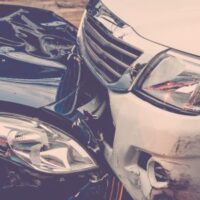Victim Options Following an Alcohol-Related Wreck

Coronavirus lockdowns may have reversed the flow in the fight against drunk drivers. Fatal alcohol-related wrecks have increased 14 percent since 2020. Alcohol is an extremely popular party drug that reduces inhibitions (clouds judgment) and relaxes muscles (impairs motor skills). Either effect is dangerous for motorists. For victims, the combination is often deadly.
Even if these victims survive these collisions, they normally sustain permanent and disabling injuries. Such injuries usually require lifelong care and significantly reduce earning ability. Therefore, a Carlsbad drunk driver accident lawyer can usually obtain substantial compensation for these victims. This compensation usually includes money for economic losses, such as medical bills, and noneconomic losses, such as pain and suffering.
Evidence in Alcohol-Related Wrecks
When they evaluate cases, some lawyers focus on legal theories and then try to find facts that support their ideas. A good Oceanside personal injury attorney takes the opposite approach, starts with the evidence in the case, then applies the correct legal theory.
Before we go further, we should highlight the difference between impairment and intoxication. Compensation is available in both situations.
Basically, impairment is a partial loss of physical or mental faculties. Drivers have very little margin of error in these situations. A slight impairment of judgment ability or motor skills usually violates a driver’s duty of care. Evidence of impairment includes:
- Erratic driving before the wreck,
- Bloodshot eyes,
- Odor of alcohol,
- Unsteady balance, and
- Slurred speech.
Individually, these bits of evidence prove little or nothing. For example, many sober people drive erratically. However, the burden of proof is so low in civil cases (a preponderance of the proof, or more likely than not) that the whole of this evidence is greater than the sum of its parts.
Intoxication is the substance-related complete loss of physical or mental faculties. That substance could be alcohol, another drug, and/or some combination of the two. California has a very broad DUI-drug law. Most people have intoxicating drugs in their medicine cabinets, refrigerators, and pantries.
Most jurisdictions have mandatory DUI arrest policies. If officers have probable cause, they must arrest these suspects. A criminal arrest usually sets the stage for the negligence per se shortcut, which is outlined below.
The criminal citation establishes liability (legal responsibility) in negligence per se cases. So, the aforementioned circumstantial evidence is unnecessary on this point. But additional evidence establishes damages (need for compensation). Usually, there’s a direct relationship between the amount of proof a victim/plaintiff presents and the amount of compensation a jury awards. However, an attorney must be careful to avoid overkill.
Legal Theories
Tortfeasors (negligent drivers) who break safety rules and cause injuries are liable for damages as a matter of law. This intoxication legal theory is relatively straightforward.
Impairment is more legally complex. Compensation is available if the tortfeasor breached a duty of care, and that breach substantially caused injury.
A sip or two of wine or champagne at a religious or marriage ceremony probably doesn’t breach the duty of care, even though the driver is technically impaired. A glass or two of wine or champagne is a different story.
Additionally, the breach must substantially cause damage. The victim’s own conduct, perhaps the failure to wear a seatbelt, or environmental conditions, such as a wet road, could contribute to an alcohol-related wreck. But since California is a pure comparative fault state, maximum compensation is usually still available in these cases.
Work With a Thorough San Diego County Lawyer
Injury victims are entitled to substantial compensation. For a free consultation with an experienced personal injury lawyer in Carlsbad, contact the Pursley Law Firm. We do not charge upfront legal fees in these matters.
Source:
nhtsa.gov/risky-driving/drunk-driving

